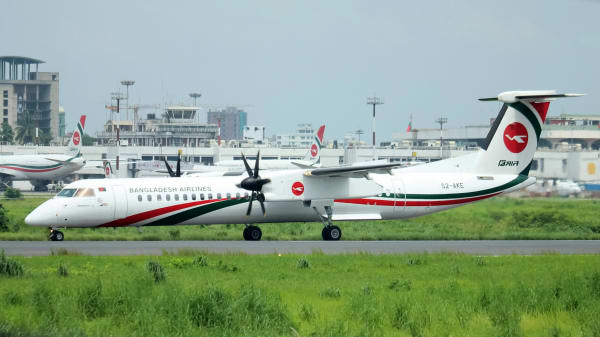The Impact of 5G Technology on Aviation
The emergence of 5G technology marks a significant turn in global telecommunications. Enhancing operations across a myriad of sectors, from robotics to healthcare, it's hardly a surprise that this powerful technology has found its place in the aviation industry. This article aims to illuminate the transformative potential of 5G technology in aviation, and exactly why its integration is certain to revolutionize this critical sector.
A Glimpse into 5G Technology
Before we dive into how 5G is likely to shape the future of aviation, it's paramount to understand what exactly this technology entails.
The term '5G' represents the fifth generation of mobile broadband technology, its predecessors being 1G, 2G, 3G, and 4G technologies. So, why is 5G taking the world by storm? Here’s why:
Higher Data Speeds: The peak network speeds are expected to be around 20 gigabits per second, compared to the 4G speed of just 1 gigabit per second. By outpacing previous generations, 5G delivers ultra-fast speeds that can effectively support real-time applications.
Reduced Latency: Latency is the delay that occurs in the transmission of data. 5G aims to reduce this delay to less than a millisecond.
Increased Capacity: 5G technology can accommodate countless connected devices, from smartphones to IoT gadgets.
Greater Network Efficiency: With more efficient data transmission, 5G saves energy and reduces costs.
Now, let’s unveil the magic this technology holds for aviation.
5G in Aviation: The Future is Sky High
The integration of 5G technology in aviation can lead to tremendous advancements across several aspects. Here are some key areas that stand to benefit:
Enhanced Passenger Experience
High-Speed Inflight Wi-Fi: With cutting-edge 5G technology, passengers can expect faster, more reliable internet connectivity. This means streaming your favorite 4K videos, engaging in online gaming, or working remotely – all while cruising at 35,000 feet!
Personalized Services: The high data speeds and low latency of 5G can enable seamless inflight applications, such as personalized entertainment and virtual reality experiences. These services can be accessed without buffering or lag, to the delight of passengers.
Workforce Transformation
Remote Aircraft Inspection: The lower latency of 5G could permit remote inspections of aircraft - saving time, reducing costs, and enhancing safety.
True Real-Time Data: From the cockpit to the control tower, operations stand to benefit from hyper-accurate, real-time data, enabling more precise decision-making.
Smarter Air Traffic Control: By accommodating a trove of connected devices, 5G technology may streamline difficult to manage air traffic scenarios and improve overall airspace management.
Ground and Flight Operations
High-Speed Ground Communication: 5G has the potential to transform ground operations, allowing for faster, seamless communication between ground staff, aircraft, and air traffic control. This could fundamentally change how information is relayed, leading to more efficient operations.
Improved Aircraft Maintenance: A more connected, intelligent maintenance system could identify issues before they develop into problems, prompting preventative action and saving valuable time and resources.
Emergence of Smart Airports
A 'smart airport' leverages digital technology to optimize operations and enhance the travel experience.
Passenger Processing: With facial recognition technology powered by 5G, passengers might progress from the check-in desk to the plane in a seamless flow, without ever needing a boarding pass.
Real-time, Augmented Reality Signage: 5G augmented reality could provide travelers with live, personalized airport directions, enhancing their airport experience.
Robotic Assistance: From autonomous luggage trolleys to automated check-in kiosks, 5G could enable a surge of robotic assistance in airports.
The transformative potential of 5G technology in aviation is profound. The spectrum of benefits for passengers, workforce, ground, and flight operations, and the advent of smart airports all signal the onset of a bright, digital future. The marriage of 5G technology and aviation is set to redefine expectations, revolutionize operations, and pave the way for a new era of aviation growth.
As aviation strives towards providing safer, more efficient, and enjoyable flight experiences, it's clear that 5G technology will be a fundamental catalyst in achieving these goals. Thus, it is incumbent upon aviation stakeholders worldwide to harness the power of 5G. The journey may be complex, but the resulting transformation will be well worth the effort. The 5G age is no longer a distant forecast; it’s overhead and ready to fly.




